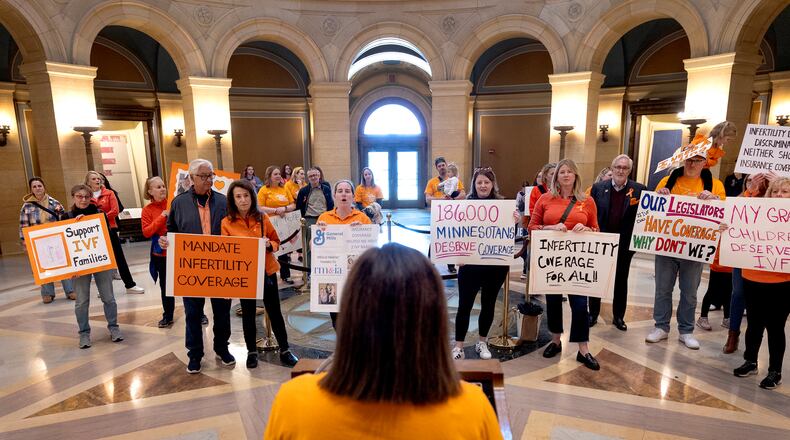Like the civilian population, starting a family is a life goal for many veterans. But thousands of combat veterans might never get to have children of their own if former President Donald Trump gets elected because of the policies espoused by Trump and many on the right.
I’m a sexuality educator, coach and documentary filmmaker and have a Ph.D. in human sexuality education. After I broke my neck in a diving accident and suffered a spinal cord injury, I decided to devote my life to helping other people with disabilities discover ways to have fulfilling intimate relationships. This work led to me working with hundreds of veterans with disabilities and to directing and producing the documentary “Love After War: Saving Love, Saving Lives.”
Credit: Handout
Credit: Handout
Because of enemy usage of improvised explosive devices (IEDs) in Iraq and Afghanistan and thanks to improvements in trauma medicine that kept more wounded soldiers alive, the rate of traumatic injuries to lower limbs and genitalia — injuries that are survivable, but difficult to live with — tripled from previous wars. Many of these service members were so young when they deployed that they had had few or no sexual experiences before being injured, further adding to their despair.
It is not an exaggeration to say that these are people who have already made profound sacrifices. Even beyond those who suffered blast injuries, studies have shown that infertility rates among veterans of Iraq and Afghanistan are double that of the general population and that 37% of active-duty women experience infertility, a rate that is about three times the national average.
Combat injuries that lead to infertility can include damage to the reproductive system, exposure to toxins, surgical interventions that can result in infertility and medications used to treat post-traumatic stress disorder (PTSD) and traumatic brain injuries (TBI) that can make natural conception difficult.
Reproductive freedom is a major issue in the upcoming presidential election. Since the Supreme Court overturned Roe v. Wade in 2022, states across the country have taken steps to restrict abortion. But, in addition to restricting abortion access, Alabama, Louisiana, Florida, Arizona, South Carolina and Texas — all states with significant military and veteran populations — are also currently limiting or potentially limiting access to in vitro fertilization (IVF) through the introduction of fetal personhood laws, which grant legal rights to embryos. These laws can complicate or restrict IVF procedures by making it illegal to discard embryos, a standard part of the IVF process.
Every year, nearly 100,000 American babies are conceived using IVF. It’s a tremendous medical procedure that makes the dream of starting a family a reality for many, including Sen. Tammy Duckworth, a wounded warrior herself who spoke about her experiences with IVF at the Democratic National Convention. Wanting to start a family is a fundamental human desire, and not being able can exacerbate feelings of loss and helplessness. IVF presents an opportunity to bypass these physical obstacles, offering a chance to experience the joys of parenthood.
However, not only has Trump bragged about his role in overturning Roe v. Wade, which made fetal personhood laws possible, he has also said that he believes leaving the issue to the states is the right approach, making it clear that he will not support actions that prevent states from passing these laws.
Though reproductive freedom is often viewed as a women’s issue, let me assure you, the impact of these restrictions is devastating for women and men, particularly for those who volunteered to serve in our nation during wartime and were seriously wounded. According to a 2023 study, more than 17,000 veterans had at least one infertility diagnosis. Of those, 8,766 were male and 8,450 were female. The same study found that “incident diagnoses of infertility” were found in more than 7,000 of the male veterans and roughly 5,500 of the female veterans.
Republicans claim to support the military and frequently talk about the need to reverse the nation’s declining birthrate, but their stance on fetal personhood laws indicates just the opposite.
These veterans fought for us. It’s time we fight for them.
Mitchell Tepper is an Atlanta-based sexuality researcher and educator who brings a lifetime of experience with chronic conditions and disabilities to his work and who wrote, directed and produced the “Love After War documentary.”
About the Author
Keep Reading
The Latest
Featured


